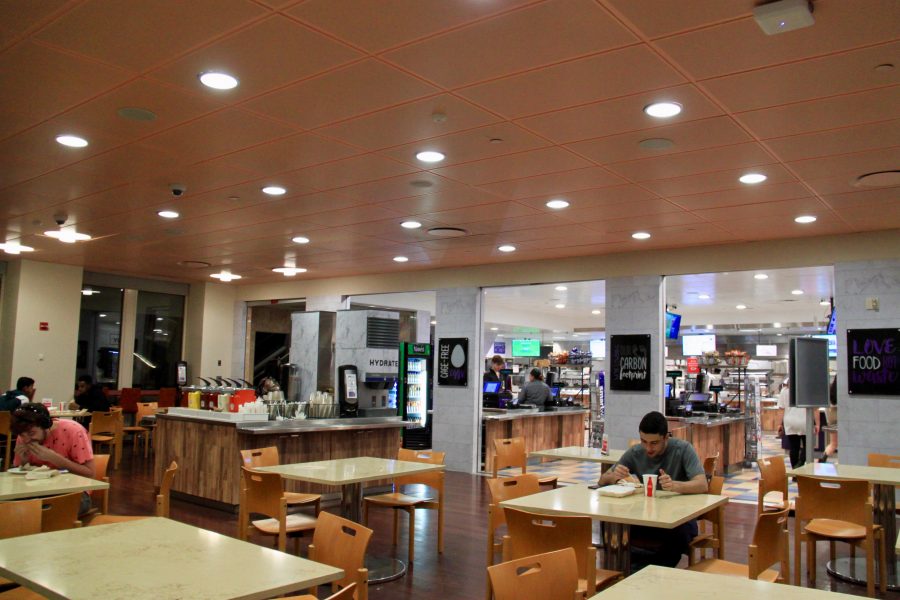Students came up with ideas for how NYU’s high cost of attendance could be alleviated — even if by small increments, like cheaper meal plans or subsidized MetroCards for students — at a town hall Wednesday.
Hosted by Student Government Assembly’s Financial Committee, which is made up of both SGA members and unaffiliated students, the event’s purpose was to provide students the opportunity to voice their grievances about financial issues that come with attending NYU.
“We host town halls like these to get the student voice involved,” Gallatin senior and member of the committee Rosa Báez told WSN. “We can’t speak for the whole student body until we hear from the student body.”
NYU costs over $70,000 per year to attend, and with 6.1% of students from the bottom 20% income bracket, many may struggle to afford an NYU education.
Students at the town hall suggested making meal plans more affordable as one way to help those facing financial issues, a topic that has been brought up before. A previously-discussed proposal suggested adding a “Bronze Plan” priced at $1,500 per semester for 175 meals and $800 for 95 meals. At the start of the semester, NYU Dining’s rebrand as NYU Eats came with a flurry of initiatives that included the creation of an Incubator Team of students and staff whose first goal would be to work on a more affordable meal plan option.
As of now, no such proposal has been adopted and the lowest cost meal plan, 95 flex, costs a total of $1,415. First-years are required to have at least the 225 meal plan, which costs $2,495. On Wednesday, many students expressed that these costs were too high.
“We are essentially paying ahead when it comes to our meal plans, and yet those meals at the end of the semester just sit there and go where?” attendee and CAS first-year Ron Hall said. “I don’t think we fall short of good ideas among students, but it’s about how we get faculties or the Board of Trustees to hear it, resonate and actually create action with it.”
Students at the meeting certainly weren’t short of ideas. Some solutions mentioned were a short-term meal plan during times such as midterms, when it may be difficult for students to manage their own meals. Other ideas included having a meal plan per dining hall, merging campus cash — which can currently only be used for vending machines and laundry — with dining dollars, offering a smaller, 45-swipe meal plan and “half-swipes” for foods such as Palladium smoothies or Jamba Juice, which attendees agreed shouldn’t count for one full meal swipe.
Attendees also expressed a desire for NYU to subsidize the cost of their commute; specifically, they said the university should offer subsidized MetroCards. Students referenced a petition by Tisch School of the Arts students for NYU to provide MetroCards to those who have long commutes to their studios, and added that it should not only be for Tisch students, but all students should have their commutes subsidized.
Affordability proposals aside, students said they first need to know where their money is going and why resources cost what they cost. Being a private university, NYU is not required to release much financial information besides a 990 form, which is required due to its nonprofit status.
“Housing specifically is not a very transparent process,” said LS first-year Brandon Kim, who attended the event. “It’s good to know where it goes and whether I’m getting charged comparable prices, especially living with someone else. I’m in Founders but I think it’s close to $1,800 a month, so I’d like to know what’s happening.”
Prices range from a $4,250 per semester low-cost triple at Rubin Hall to a $11,386 single in Alumni Residence Hall. Students expressed a desire to know how housing prices are determined and many agreed that a way to create consistency would be to pay by the square footage of a room.
Students also complained about a general lack of transparency regarding finances, like with the Wellness Center’s budget. The Wellness Center, under the Student Health Center, does not release its budget. The closest information available is the budget for Student Affairs, the department it is under, which received 3% of the 2019 fiscal budget (the 2020 budget has not yet been released).
Using suggestions from this event, the committee will draft recommendations on how NYU can better support their student body and present that to NYU’s Board of Trustees.
“The next step is to start our writing process,” Báez said. “So we will be writing recommendations to the university on how they can be more financially conscious for their students.”
Email Ronni Husmann at [email protected].

























































































































































